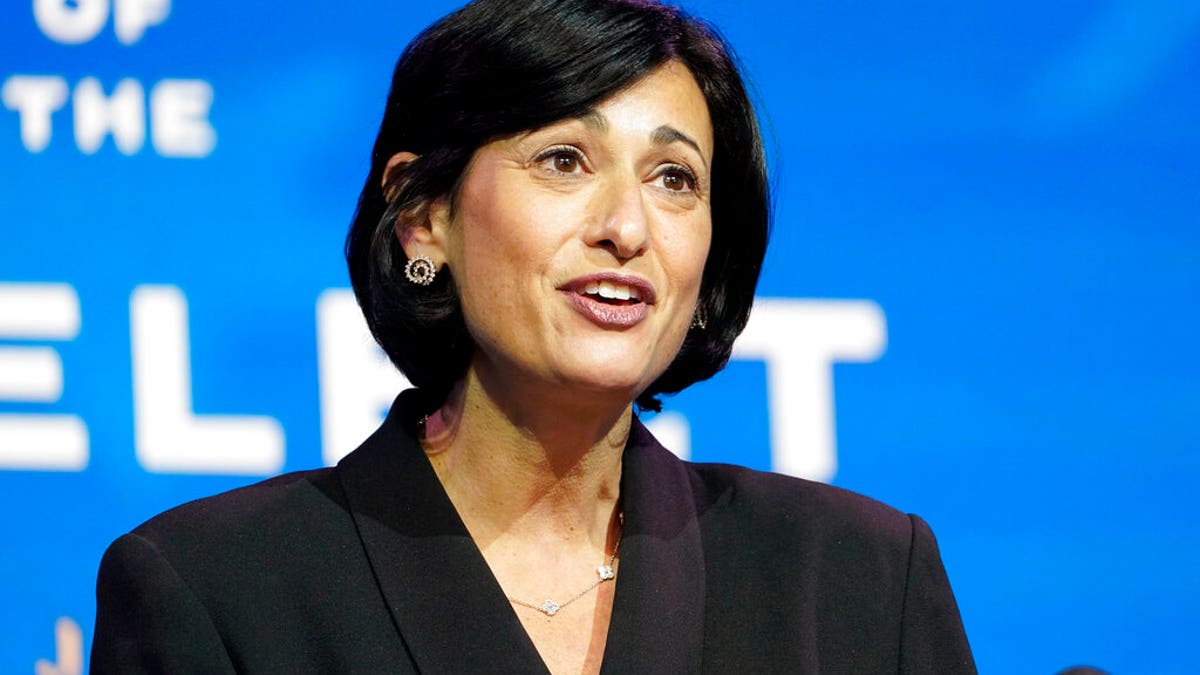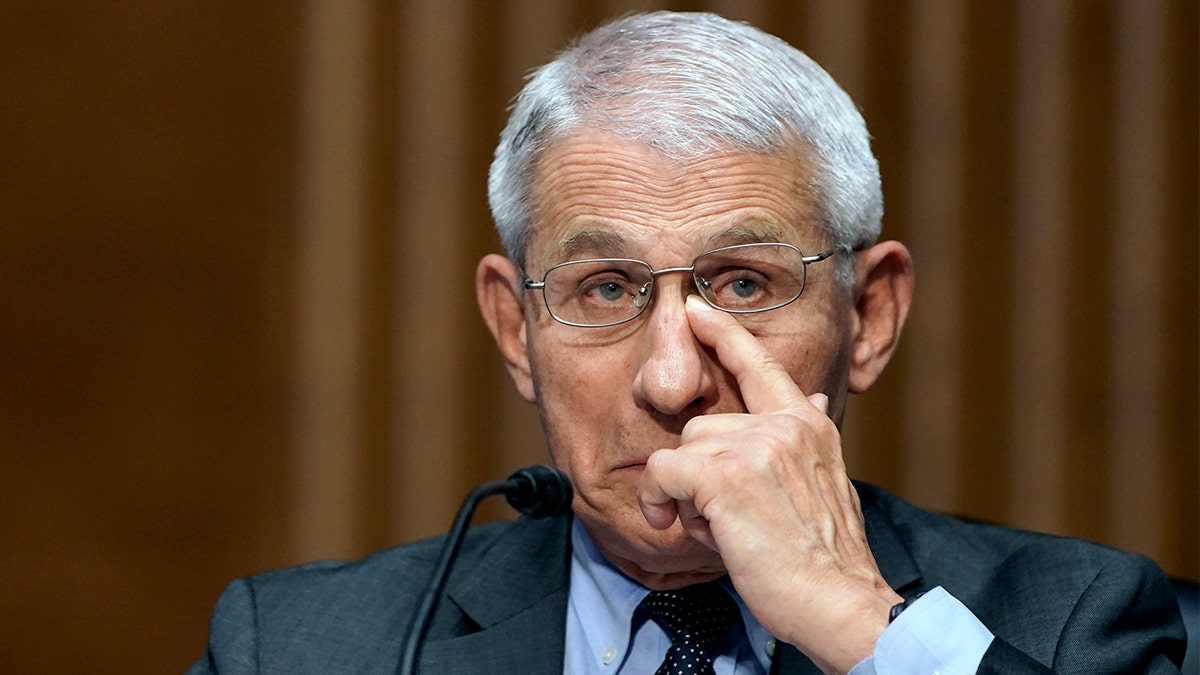Former White House COVID testing czar on CDC's messaging 'disaster' on masks, vaccines
Admiral Brett Giroir says the CDC's language on masks and vaccines has been 'very confusing' for Americans and should have been coordinated with the Biden administration.
The Centers for Disease Control and Prevention (CDC) created some confusion last week when it said those who are fully vaccinated can, in most circumstances, forgo wearing masks both indoors and outdoors while those who are unvaccinated must keep wearing them.
Fully vaccinated and unvaccinated individuals, however, must keep wearing masks while in crowded indoor settings, like hospitals, museums and movie theaters, and while on public transportation.

People walk past a sign requesting customers to wear masks in Laguna Beach, California, Monday, May 17, 2021. (AP)
"We have all longed for this moment when we can get back to some sense of normalcy," CDC Director Dr. Rochelle Walensky announced during a White House COVID-19 briefing last Thursday. "Based on the continuing downward trajectory of cases, the scientific data on the performance of our vaccines, and our understanding of how the virus spreads, that moment has come for those who are fully vaccinated."
But despite Walensky’s announcement, confusion still abounds. States have not implemented a uniform policy. Texas, Florida and New Hampshire, among others, for example, have already repealed mask mandates or allowed them to expire while California has set an arbitrary date of June 15 to implement the CDC’s guidelines.
PFIZER-BIONTECH COVID-19 VACCINE CAN BE STORED FOR UP TO A MONTH IN REFRIGERATOR, EU REGULATOR SAYS
Meanwhile, many businesses and localities are maintaining mask requirements because they can’t be sure of an individual’s vaccination history.
In short, there is no fixed date when the entire nation will no longer be compelled to wear masks in all circumstances.
Richard Watkins, M.D., an infectious disease physician, told Prevention that the end of mask mandates will be tied to the end of the pandemic.
"[I]f and when we achieve herd immunity, routine mask-wearing can likely be discontinued," he said.

FILE: Dr. Rochelle Walensky, speaks during an event in Wilmington, Del. (AP)
Most health experts agree that masks are generally useful in reducing the spread of COVID-19, which happens through the inhalation of viral particles. The N-95 mask is the most effective, providing 95% protection levels against airborne viruses. Surgical masks are less effective, and cloth masks are even less so – but they both still contribute to a significant reduction in viral transmissions.
But even if the majority of Americans do get vaccinated against COVID-19, mask-wearing may still be the norm for future flu seasons. A typical flu season generally peaks between December and February, creating 810,000 hospitalizations and 61,000 deaths, according to Johns Hopkins University. But, with most people wearing masks and following CDC guidelines, there were less than a few thousand flu cases this year.
WHITE HOUSE'S SLAVITT REVEALS SON'S LONG-COVID BATTLE AS HE URGES YOUNG PEOPLE TO GET VACCINATED
Some health experts believe masks could have some staying power now that they’ve become socially acceptable and were useful in reducing flu cases.
"Masks were common in Asia pre-COVID, so I expect more people in the U.S. will be comfortable wearing them after the pandemic," Watkins told Prevention.
But other health experts worry that because this year’s typical flu season was, comparatively speaking, less severe than in previous years, the next flu season will be worse.
"So, the number of people who may have more severe infections next year is likely to be greater because immunity will be lower," said Dr. Eili Klein, an associate professor of emergency medicine at the Johns Hopkins University School of Medicine.
Dr. Anthony Fauci, the nation’s top infectious disease expert, acknowledged some of the confusion created after the CDC’s announcement. In an interview with ABC News, Fauci said the problem "is that we don’t have any way of knowing who is vaccinated and who’s not."

Dr. Anthony Fauci, director of the National Institute of Allergy and Infectious Diseases. (AP)
He said it is "reasonable and understandable" that some places are maintaining mask requirements because they can’t be 100% certain of an individual’s vaccination status.
Fauci added that children who are not vaccinated – including those under 12 who won’t be eligible for vaccines for months – should continue to wear masks indoors. But he qualified that these recommendations could change as the CDC conducts more research and more Americans get vaccinated.
CLICK HERE TO GET THE FOX NEWS APP
According to the latest figures from Our World in Data (OWID), around 38% of Americans have been fully vaccinated, with about 274 million doses given. Earlier this month, President Joe Biden set an ambitious vaccination goal of 70% of the U.S. adult population having one vaccine shot by July 4.
Fox News’ Alexandria Hein and Kayla Rivas and the Associated Press contributed to this report.









































